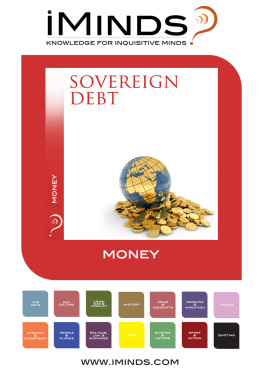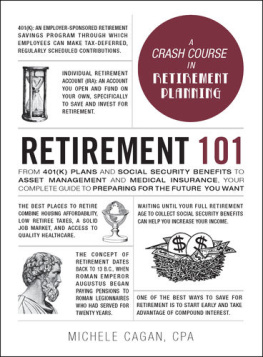
Credit and Power
This book reveals the surprising role that credit, money created ex nihilo by financiers, played in raising the British governments war loans between 1793 and 1815. Using often overlooked contemporary objections to the National Debt a startling paradox is revealed as it is shown how the governments ostensible creditors had, in fact, very little real money to lend and were, instead, often reliant on the very government to which they were lending for their own solvency. By following the careers of unsuccessful loan-contractors, who went bankrupt lending to the government, to the triumphant career of the House of Rothschild, who successfully exported the British system of war-financing abroad with the coming of peace, the symbiotic relationship that existed between the British government and their ostensible creditors is revealed. Also highlighted is the power granted to the (technically bankrupt) Bank of England over credit and the money supply, an unprecedented and highly influential development that filled many contemporaries with horror. This is a tale of bankruptcy, stock market manipulation, bribery and institutional corruption that continues to exert its influence today and will be of interest to anyone interested in government financing, debt and the origins of modern finance.
Simon Sherratt is an economic historian interested in the National Debt, government loan-contracting, credit and money creation.
Routledge Studies in Modern British History
James Mills Utilitarian Logic and Politics
Antis Loizides
Chartism, Commemoration and the Cult of the Radical Hero
Matthew Roberts
White-Collar Crime in Late Nineteenth and Early Twentieth-Century Britain
John Benson
Transport and its Place in History
Making the Connections
Edited by David Turner
The Independent Labour Party 19141939
The Political and Cultural History of a Socialist Party
Keith Laybourn
Sport and the Home Front
Wartime Britain at Play, 193945
Matthew Taylor
Weather, Migration and the Scottish Diaspora
Leaving the Cold Country
Graeme Morton
Science, Utility and British Naval Technology, 17931815
Samuel Bentham and the Royal Dockyards
Roger Morriss
Credit and Power
The Paradox at the Heart of the British National Debt
Simon Sherratt
www.routledge.com/history/series/RSMBH
First published 2021
by Routledge
2 Park Square, Milton Park, Abingdon, Oxon OX14 4RN
and by Routledge
52 Vanderbilt Avenue, New York, NY 10017
Routledge is an imprint of the Taylor & Francis Group, an informa business
2021 Simon Sherratt
The right of Simon Sherratt to be identified as author of this work has been asserted in accordance with sections 77 and 78 of the Copyright, Designs and Patents Act 1988.
All rights reserved. No part of this book may be reprinted or reproduced or utilised in any form or by any electronic, mechanical, or other means, now known or hereafter invented, including photocopying and recording, or in any information storage or retrieval system, without permission in writing from the publishers.
Trademark notice: Product or corporate names may be trademarks or registered trademarks, and are used only for identification and explanation without intent to infringe.
British Library Cataloguing-in-Publication Data
A catalogue record for this book is available from the British Library
Library of Congress Cataloging-in-Publication Data
Names: Sherratt, Simon, 1972 author.
Title: Credit and power : the paradox at the heart of the British
national debt / Simon Sherratt.
Description: Milton Park, Abingdon, Oxon ; New York, NY :
Routledge Taylor & Francis, 2021. | Series: Routledge studies in
modern British history | Includes bibliographical references and
index.
Identifiers: LCCN 2020024050 (print) | LCCN 2020024051
(ebook) | ISBN 9780367333614 (hardback) | ISBN
9780429319396 (ebook) | ISBN 9781000214086 (adobe pdf) |
ISBN 9781000214109 (mobi) | ISBN 9781000214123 (epub)
Subjects: LCSH: Debts, PublicGreat Britain. | Great Britain
Economic conditions17601860.
Classification: LCC HJ8624 .S54 2021 (print) | LCC HJ8624
(ebook) | DDC 336.3/4094109034dc23
LC record available at https://lccn.loc.gov/2020024050
LC ebook record available at https://lccn.loc.gov/2020024051
ISBN: 978-0-367-33361-4 (hbk)
ISBN: 978-0-429-31939-6 (ebk)
Typeset in Sabon
by Apex CoVantage, LLC
To my parents, my wife and Buddy without whose support and encouragement this book would not have been possible.
Irrespective of other considerations, it is perfectly true to say [that] the system of raising funds necessary for wars by loans practices wholesale systematic continued deception upon the people. Under such a system the people do not really know what they are doing. The consequences are adjourned into a far future deluding themselves at the cost of bequeathing a charge on posterity.
William Gladstone, Budget speech 6 March 1854
In March 1819, almost four years after Napoleons Political Register. Cobbetts To His Royal HighnessLetter II (1819) was remarkable for its frank exposition of the unprecedented financial practices that had become a routine feature of the British system of war-financing over the previous two decades.
It was a system Cobbett viewed with horror.
This is something wholly new in the affairs of nations. Such a thing never existed before. Paper-money, banks, bubbles, have before existed: but a power like this was never before heard of in the world They [the Bank of England] make the thing they lend. It is representative of nothing but their will If they were liable to be called upon for payment in money, not of their own making, the case would be different [however] they are protected by what is called a law against the just demands of their creditors.
The power decried by Cobbett was the ability of the Bank of England to print money (in the form of banknotes) without the necessity of these notes being backed by gold or other tangible assets. This circumstance was made possible following the British governments passing of a law in 1797 (a law often referred to as the suspension of payments) that relieved the Bank of England from the obligation of having to cash its notes for gold upon request. Borne out of dire necessity this unprecedented move, while doubtless greatly facilitating Britains war effort, contained resonances that went far deeper.
Cobbett was indeed correct to note both the novelty of this situation and, just as importantly, the power that it gave to those in a position to wield it.
What a monstrous power this is! If a king were to ask for such power, if he were to show a desire to obtain absolute power [of the money supply] at his pleasure th[e] people would be fully justified in destroying him as a monster Yet, the seat-dealers and their bank have not only sought for this power; they have obtained it and exercised it This combination of tyrants can, at any time, make money plenty or scarce Works of this description they have carried on; and they can repeat them at their sole will and pleasure.










